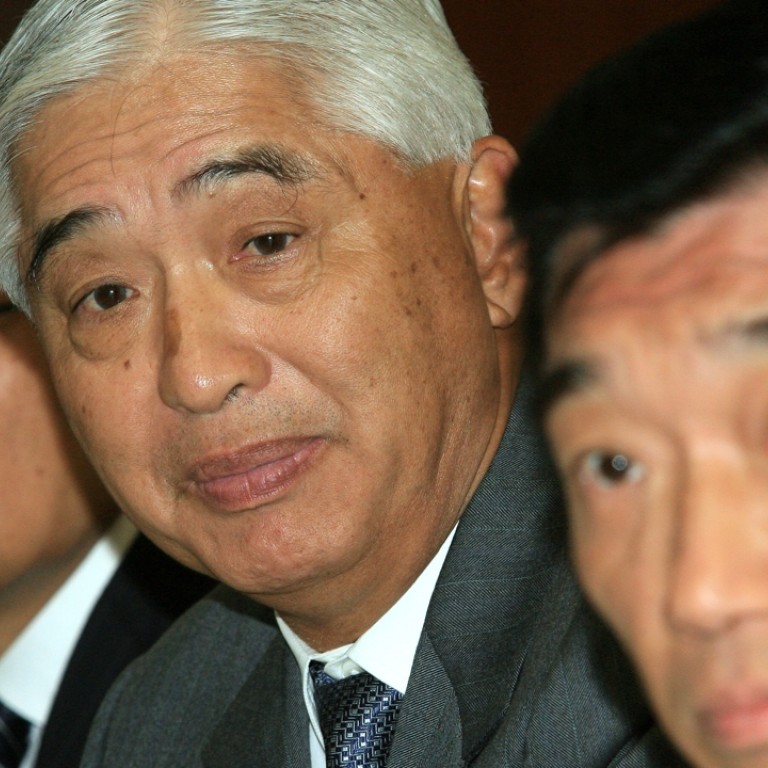
New | Tribunal of Citic ex-chairman and four other former directors gets underway
Proceedings will look into whether ex-chairman Larry Yung Chi-kin and four other directors made misleading statements related to HK$14.7b in forex hedging losses
Hearings begin today in the keenly anticipated tribunal of mainland conglomerate Citic and four former directors, including princeling and ex-chairman Larry Yung Chi-kin, on market misconduct charges relating to massive undisclosed foreign exchange losses.
To be heard by the Market Misconduct Tribunal, the case is part of a wider action taken against Citic and its directors by Hong Kong’s securities regulator, the Securities and Futures Commission.
The tribunal will hear claims that billionaire Yung and four other former directors were either “reckless” and/or “negligent” to sign off on an exchange filing that was “false or misleading as to a material fact or was false or misleading through the omission of a material fact,” a tribunal document shows.
Facing the tribunal alongside Yung are former deputy managing directors Leslie Chang Li-hsien and Peter Lee Chung-hing, former managing director Henry Fan Hung-ling, and former executive director Chau Chi-yin.
Son of China’s former vice-president Rong Yiren, Yung built Citic into a conglomerate with a range of businesses from telecommunications, property, steel making and mining.
The case dates back to 2008 when Citic revealed HK$14.7 billion in losses stemming from a foreign exchange hedging product that was meant to protect the company’s Australian mining investment against adverse changes in the Australian dollar. According to a tribunal document, Citic directors were aware of the “material” losses by September 9, 2008 but on September 12, 2008 the directors signed off on an exchange filing saying they were “not aware of any material adverse change in the financial or trading position of the Group.” It was more than a month later, on October 20, 2008, that Citic first issued a profit warning.
If the tribunal finds the defendants liable for the misleading statement, it has the power to impose limited fines and ban people from holding directorships. A guilty verdict will also strengthen the regulators hand in a separate High Court action against the same defendants where it is seeking HK$1.9 billion in compensation to pay off 4,500 affected investors.
There were many who thought the case would never get this far given the political muscle both Citic and Yung are believed to exercise. It was only in 2014 that the SFC filed a civil claim seeking compensation for investors who bought shares in the six weeks between the dates the losses were discovered by Citic’s directors and before they were publicly announced.
After spending six years fruitlessly helping investors file claims against Citic and its directors in the small claims tribunal, lawmaker James To Kun-sun says he wants to know “the full facts” including “how the company decided to speculate a great amount of forex disproportionate to their needs and general need of hedging by the company.”
Hong Kong regulation lawyer Timothy Loh says the defendants may argue the losses were “uncrystallized” and therefore “there was nothing to disclose at the time the alleged false announcements were made.”
If the tribunal finds the defendants liable for the misleading statement, then the regulator will have grounds to demand HK$1.9 billion compensation from them to pay off 4,500 affected investors.
To be heard by the Market Misconduct Tribunal, the case is part of a wider action taken against Citic and its directors by Hong Kong’s securities regulator, the Securities and Futures Commission, seeking compensation for investors at the time.
The tribunal will hear claims that Yung and four other former directors were either “reckless” and/or “negligent” to sign off on an exchange filing that was “false or misleading as to a material fact or was false or misleading through the omission of a material fact,” a tribunal document shows.
Facing the tribunal alongside Yung are former deputy managing directors Leslie Chang Li-hsien and Peter Lee Chung-hing, former managing director Fan Hung-ling, and former executive director Chau Chi-yin.
Son of China’s former vice-president Rong Yiren, Yung built Citic into a conglomerate with a range of businesses from telecommunications, property, steel making and mining.
The case dates back to 2008 when Citic revealed HK$14.7 billion in losses stemming from a foreign exchange hedging product that was meant to protect the company’s Australian mining investment against adverse changes in the Australian dollar. According to a tribunal document, Citic directors were aware of the “material” losses by September 9, 2008 but on September 12, 2008 the directors signed off on an exchange filing saying they were “not aware of any material adverse change in the financial or trading position of the Group.” It was more than a month later, on October 20, 2008, that Citic first issued a profit warning.
There were many who thought the case would never get this far given the political muscle both Citic and Yung are believed to exercise. It was only in 2014 that the SFC filed a civil claim seeking compensation for investors who bought shares in the six weeks between the dates the losses were discovered by Citic’s directors and before they were publicly announced.
After spending six years fruitlessly helping investors file claims against Citic and its directors in the small claims tribunal lawmaker James To Kun-sun says he wants to know “the full facts” including “how the company decided to speculate a great amount of forex disproportionate to their needs and general need of hedging by the company.”
Hong Kong regulation lawyer Timothy Loh says the defendants may argue the losses were “uncrystallized” and therefore “there was nothing to disclose at the time the alleged false announcements were made.”

